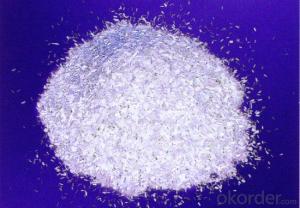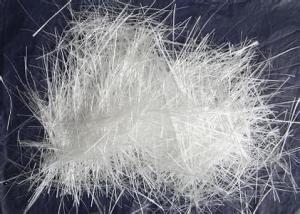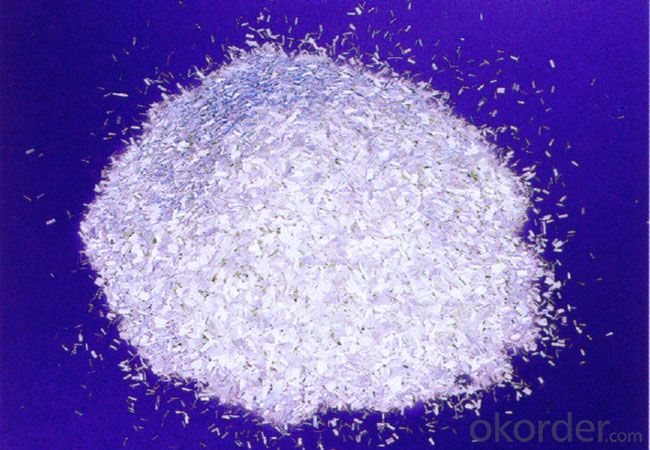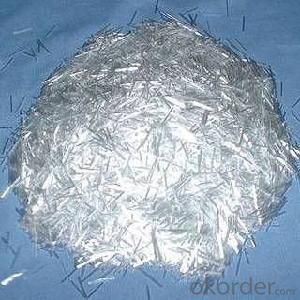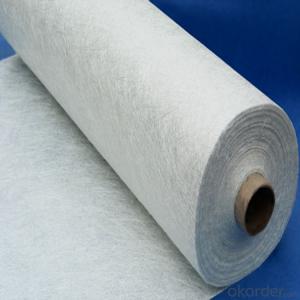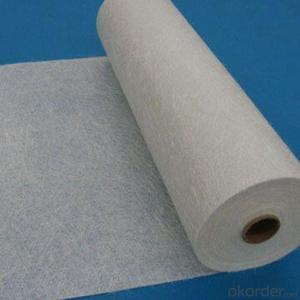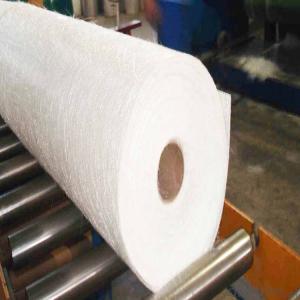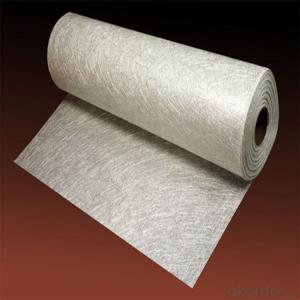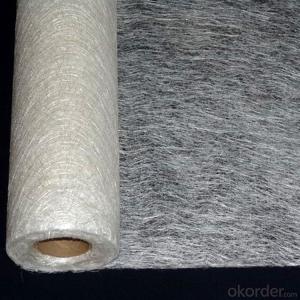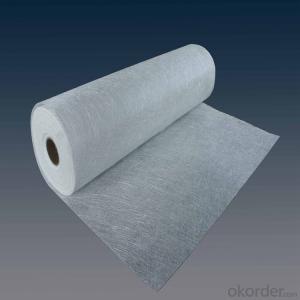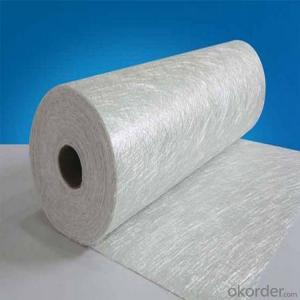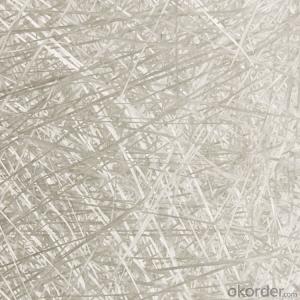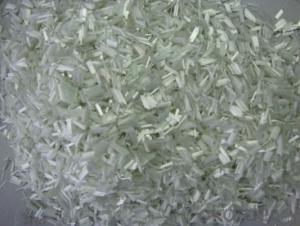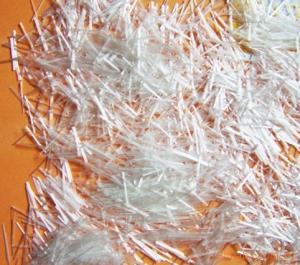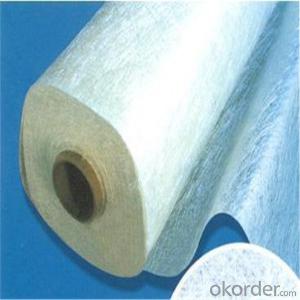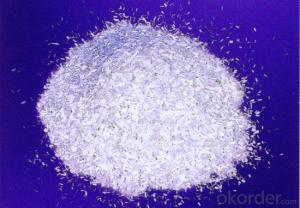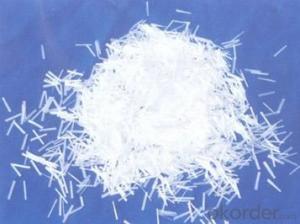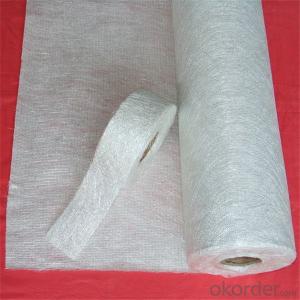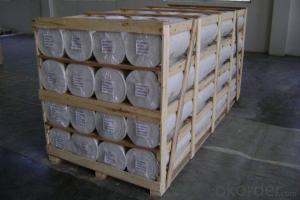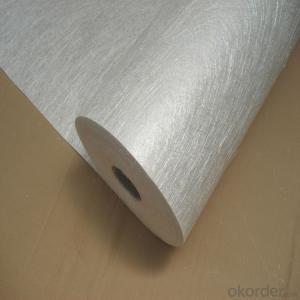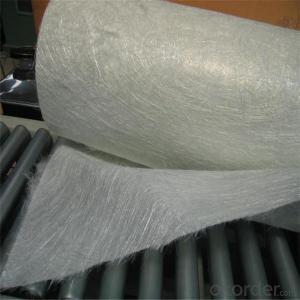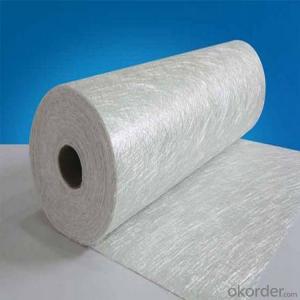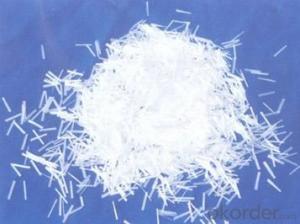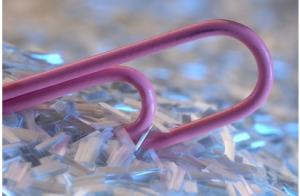1/4 Chopped Strand Fiberglass for Thermoplastics
- Loading Port:
- China Main Port
- Payment Terms:
- TT or LC
- Min Order Qty:
- 20000 kg
- Supply Capability:
- 200000Kg Per Month kg/month
OKorder Service Pledge
OKorder Financial Service
You Might Also Like
1.Brief Introduction
Chopped Stands for Thermoplastic are based on silane coupling agent and special sizing formulation, compatible with PA,PBT/PET, PP, AS/ABS, PC, PPS/PPO,POM, LCP;
E-Glass Chopped Stands for thermoplastic are know for excellent strand integrity, superior flowability and processing property, delivering excellent mechanical property and high surface quality to its finished product.
2.Product Features
Extremely low resin demand, delivering low viscosity to BMC paste
High impact strength; High LOI rate
High strand stiffness; Compatible with rubber
3.Product Specifications
Property | Fibre diameter | Moisture Content | Size Content | Chop |
(%) | (%) | (%) | (%) | |
Mathods | IS01888 | ISO3344 | ISO1887 | |
3mm | ±10 | ≤3.0 | 0.1±0.05 | 98 |
6mm | ||||
9mm | ||||
12mm |
Special specification can be produce according to customer requirements.
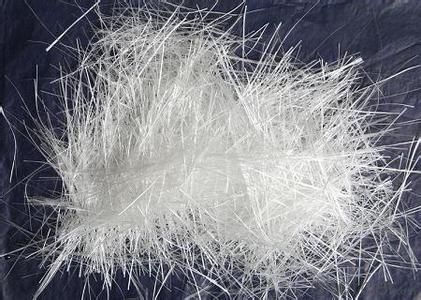
4.FAQ
Packaging:
Each bag can be taken (15-25kgs)。 Could also take a big container bag.
Storage:
Unless otherwise specified, It should be stored in a dry, cool and rain-proof area. It is recommended that the room temperature and humidity should be always maintained at 15℃~35℃ and 35%~65% respectively.
- Q: What are the typical creep properties of chopped strand composites?
- The specific material composition, processing conditions, and environmental factors can cause the creep properties of chopped strand composites to vary. However, there are certain general characteristics that can be associated with these composites. Chopped strand composites, also known as chopped strand mat (CSM) composites, are created by randomly arranging and bonding short glass or carbon fibers with a resin matrix. Due to the random fiber orientation, these composites display anisotropic mechanical properties, including creep behavior. Creep refers to the gradual deformation of a material when exposed to a constant load over time. Various factors, such as fiber distribution, fiber length, fiber orientation, resin type, curing conditions, and the applied load, can influence the creep properties of chopped strand composites. One of the typical creep properties of chopped strand composites is their time-dependent deformation. These composites experience a gradual increase in strain over time when subjected to a constant load. The extent and rate of creep deformation depend on the applied stress level, temperature, and the specific viscoelastic properties of the resin matrix. Another important creep property is the directionality of deformation. Chopped strand composites typically exhibit different creep behavior in the longitudinal (fiber direction) and transverse (perpendicular to fiber direction) directions. This anisotropic behavior is a result of the random fiber orientation and the resulting variations in fiber-matrix interactions. To enhance the creep resistance of chopped strand composites, it is possible to optimize the fiber distribution, fiber length, and orientation during the manufacturing process. In addition, using high-performance resins with improved viscoelastic properties can help minimize creep deformation. It is important to note that the creep properties of chopped strand composites can be significantly affected by environmental conditions, such as temperature and humidity. Elevated temperatures can accelerate creep deformation, while exposure to moisture can impact the fiber-matrix interface, leading to reduced creep resistance. In conclusion, the typical creep properties of chopped strand composites include time-dependent deformation, anisotropic behavior, and susceptibility to environmental factors. Understanding and controlling these properties are crucial for the design and utilization of chopped strand composites in various industries, such as automotive, aerospace, and construction.
- Q: Can fiberglass chopped strand be used in electrical insulation sheets?
- Yes, fiberglass chopped strand can be used in electrical insulation sheets. Fiberglass is a highly versatile material that offers excellent electrical insulation properties. It has a high dielectric strength, which means it can withstand high voltages without conducting electricity. The chopped strand form of fiberglass is often used to reinforce various materials, including electrical insulation sheets, to enhance their mechanical strength and durability. Additionally, fiberglass is resistant to heat, chemicals, and moisture, making it an ideal choice for electrical insulation applications.
- Q: Does fiberglass chopped strand improve the wear resistance of composite materials?
- Yes, fiberglass chopped strand does improve the wear resistance of composite materials. The fibers help strengthen the composite structure, making it more resistant to wear and abrasion.
- Q: How does the surface treatment affect the properties of fiberglass chopped strand?
- The properties of fiberglass chopped strand are significantly influenced by surface treatment. This treatment involves the application of various coatings or finishes to the strands, which can enhance their performance and compatibility with different resin systems. Improved adhesion between the fiberglass strands and the resin matrix is one of the main effects of surface treatment. By modifying the surface chemistry of the strands, the treatment creates a stronger bond with the resin. This enhanced adhesion ensures better mechanical properties of the composite material, including increased tensile strength, flexural strength, and impact resistance. Surface treatment also addresses the issue of moisture absorption in untreated fiberglass strands. Untreated strands have a hydrophilic nature, meaning they easily absorb water molecules. This water absorption can have negative effects on the mechanical properties and dimensional stability of the composite. However, surface treatment can make the strands more hydrophobic, reducing water absorption and preserving the integrity of the composite over time. Moreover, surface treatment improves the dispersibility and flowability of the chopped strands in the resin during the composite manufacturing process. This is particularly crucial for achieving a uniform distribution of the strands within the resin matrix, which ultimately affects the strength and performance of the composite material. Furthermore, surface treatment can influence the thermal stability and resistance to chemical attack of the fiberglass chopped strand. Certain treatments can provide a protective barrier against harsh environments, preventing degradation or corrosion of the composite material. It is important to consider that the specific effects of surface treatment on fiberglass chopped strand may vary depending on the type of treatment used. Different treatments may yield different mechanisms and results, and the choice of treatment should be based on the desired properties and intended application of the composite material.
- Q: Can fiberglass chopped strand be used in the production of insulation materials?
- Indeed, insulation materials can incorporate fiberglass chopped strand. Typically, this form of fiberglass is crafted from delicate glass fibers that are haphazardly chopped into brief segments. These segments can then serve as reinforcement in diverse materials, insulation materials included. By integrating fiberglass strands, the insulation gains heightened strength, durability, and thermal efficiency. Furthermore, fiberglass chopped strand also bolsters the fire resistance of insulation materials, rendering them more desirable for fire safety applications.
- Q: What are the typical quality control measures for fiberglass chopped strand composites?
- To ensure the integrity and consistency of fiberglass chopped strand composites, various typical quality control measures are commonly employed: 1. Raw Material Inspection: The initial step involves inspecting the raw materials used in production. This includes assessing the quality and specifications of the glass fibers, resins, and additives to ensure they meet the required standards. 2. Process Control: Throughout the manufacturing process, quality control measures monitor and control parameters like temperature, pressure, and resin-to-fiber ratio. This ensures consistency and conformity to specifications. 3. Fiber Length and Distribution: The mechanical properties of the composite are influenced by the length and distribution of the chopped fibers. Quality control measures are used to measure and monitor these aspects, ensuring adherence to specified requirements. 4. Composite Thickness and Density: The performance of fiberglass chopped strand composites is impacted by their thickness and density. Quality control measures are implemented to measure and monitor these factors, ensuring compliance with required standards. 5. Mechanical Testing: Various mechanical tests evaluate the strength, stiffness, and other properties of the composites. These tests include tensile strength, flexural strength, impact resistance, and fatigue testing. Quality control measures ensure accurate and consistent testing. 6. Visual Inspection: Trained inspectors visually examine the composites for defects such as voids, delamination, or surface imperfections. This quality control measure ensures compliance with cosmetic standards. 7. Dimensional Control: Quality control measures are used to measure and monitor dimensions such as length, width, and thickness, ensuring they fall within specified tolerances. 8. Packaging and Labeling: Quality control measures extend to packaging and labeling. Inspections are conducted to ensure intact packaging that protects the composites during transportation, and accurate labeling that reflects product specifications. By implementing these quality control measures, manufacturers can deliver high-quality fiberglass chopped strand composites that meet standards for strength, durability, dimensional accuracy, and appearance. This helps maintain their reputation in the market and satisfies customer expectations.
- Q: How is fiberglass chopped strand used in the agricultural sector?
- Fiberglass chopped strand is widely used in the agricultural sector for various applications. One common use is in the manufacturing of livestock and poultry housing structures. The chopped strand is mixed with resin and applied in layers to create strong and durable panels, roofs, and walls for these structures. This helps provide a secure and comfortable environment for the animals while also being resistant to harsh weather conditions. Additionally, fiberglass chopped strand is utilized in the production of irrigation systems. The strands are mixed with other materials to create pipes, tubes, and tanks that are used for storing and distributing water in agricultural fields. These fiberglass-based irrigation systems offer excellent resistance to corrosion, ensuring the longevity and efficiency of the water distribution process. Moreover, fiberglass chopped strand is employed in the manufacturing of agricultural equipment such as sprayers, seeders, and fertilizers. The chopped strand is mixed with plastic resin to create strong and lightweight components, which enhance the overall performance and durability of these machines. This allows farmers to efficiently and effectively manage their crops, ultimately increasing productivity. Furthermore, fiberglass chopped strand is used in the construction of greenhouses and nurseries. The strands are mixed with other materials to create panels and roofing systems that provide optimal light transmission and thermal insulation. This creates an ideal environment for plant growth, protecting them from extreme weather conditions and ensuring their healthy development. Overall, the use of fiberglass chopped strand in the agricultural sector is diverse and essential. It plays a crucial role in creating durable housing structures for livestock, manufacturing efficient irrigation systems, producing reliable agricultural equipment, and constructing effective greenhouses. The strength, versatility, and resistance to corrosion make fiberglass chopped strand an ideal material for various agricultural applications, ultimately contributing to improved farming practices and increased crop yields.
- Q: Is fiberglass chopped strand compatible with other reinforcement materials?
- Yes, fiberglass chopped strand is compatible with other reinforcement materials. It can be used in combination with materials like carbon fiber, aramid fiber, or even traditional steel reinforcement, depending on the specific application and desired performance characteristics.
- Q: Is fiberglass chopped strand suitable for marine vessel hulls?
- Marine vessel hulls can benefit from the use of fiberglass chopped strand. This material, known for its strength and lightness, is commonly utilized in boat and marine vessel construction. Fiberglass chopped strand is made up of randomly oriented and bonded small fiber strands, which makes it easy to handle and apply to the surface of the hull. The strength and durability of fiberglass chopped strand make it an excellent choice for withstanding the challenging conditions of the marine environment. It is resistant to water, chemicals, and UV radiation, ensuring that the hull remains intact and protected against corrosion. Moreover, fiberglass chopped strand can be easily shaped into intricate forms, allowing for the creation of customized hull designs. It can also be layered to enhance the thickness and strength of the hull, providing additional structural integrity. In summary, fiberglass chopped strand is a dependable and widely utilized material for marine vessel hulls. Its combination of strength, durability, and versatility makes it an appropriate option for boat builders seeking to construct high-quality and long-lasting vessels.
- Q: Can fiberglass chopped strand be used in electrical insulation varnishes?
- Yes, fiberglass chopped strand can be used in electrical insulation varnishes. Fiberglass is a versatile material that offers excellent electrical insulation properties. When used in varnishes, it can enhance the insulation and thermal resistance of the coating. The chopped strand form of fiberglass allows for easy incorporation into the varnish formulation, providing reinforcement and improving the mechanical strength of the insulation. Additionally, fiberglass chopped strand can help to reduce the shrinkage and cracking of the varnish during the curing process, improving the overall performance and durability of the insulation.
Send your message to us
1/4 Chopped Strand Fiberglass for Thermoplastics
- Loading Port:
- China Main Port
- Payment Terms:
- TT or LC
- Min Order Qty:
- 20000 kg
- Supply Capability:
- 200000Kg Per Month kg/month
OKorder Service Pledge
OKorder Financial Service
Similar products
Hot products
Hot Searches
Related keywords
